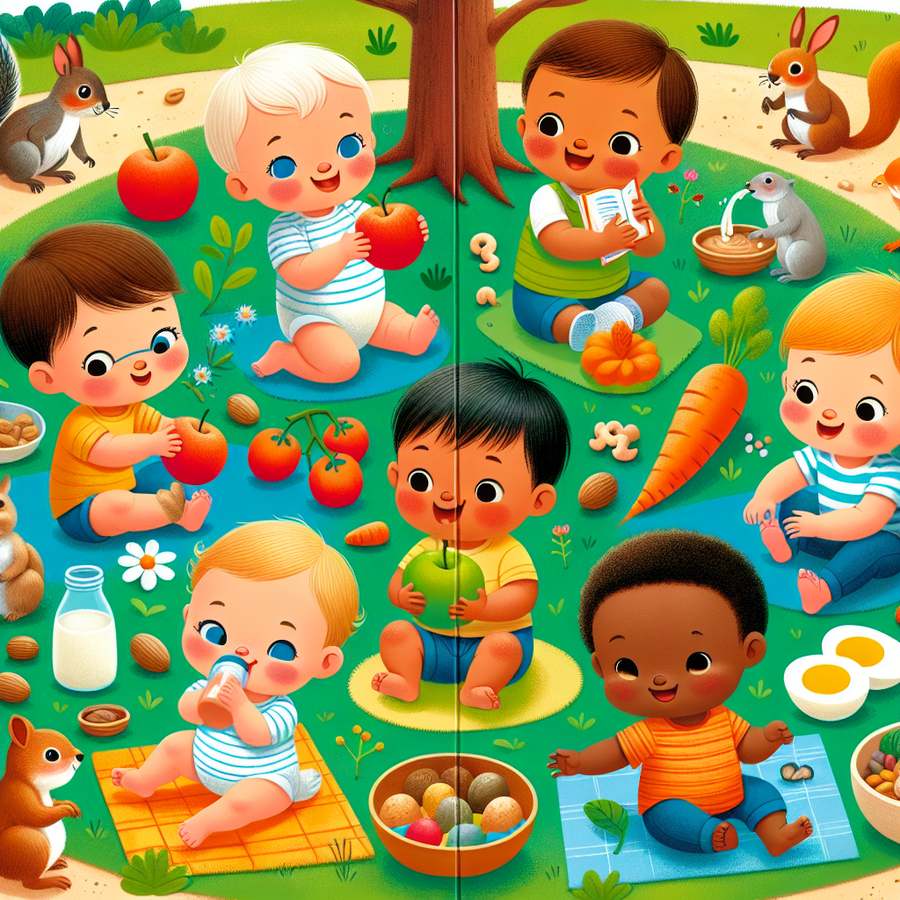Addressing Nutritional deficiencies in toddlers: Signs and prevention is crucial for their growth and development. This article dives deep into understanding the common deficiencies, their signs, and proactive prevention measures. As parents or caregivers, being informed can help us ensure our toddlers thrive.
Understanding Nutritional Needs in Toddlers
Toddlers are at a critical stage of growth and development, making their nutritional needs particularly important. A balanced diet that includes all essential vitamins and minerals supports their physical growth, brain development, and immune system. However, due to picky eating habits or other factors, toddlers may not always receive the nutrition they need, leading to deficiencies.
A comprehensive approach to nutrition can prevent these issues. Incorporating a variety of foods, focusing on nutrient-dense options, and understanding the role of supplementation when necessary, can all play a part in fulfilling a toddler’s dietary requirements.
Nutritional deficiencies in toddlers: Signs and prevention
Recognizing the signs of nutritional deficiencies is the first step towards prevention. Common deficiencies in toddlers include iron, vitamin D, and calcium, each presenting with distinct signs. For example, iron deficiency may manifest as fatigue, pale skin, and irritability, while vitamin D deficiency might lead to bone weakness and delayed growth.
Prevention is key and starts with a balanced diet that includes foods rich in the nutrients that toddlers are most commonly deficient in. For iron, consider incorporating red meat, beans, and fortified cereals. For vitamin D, look to fatty fish, eggs, and fortified milk products. Calcium-rich foods include dairy products, leafy greens, and tofu. In some cases, supplements may be necessary, but this should be determined by a healthcare professional.
Strategies for Preventing Nutritional Deficiencies
Adopting practical strategies can significantly reduce the risk of nutritional deficiencies. Comprehensive dietary planning that ensures toddlers receive a wide variety of nutrients is essential. Regular meal and snack times that include a variety of food groups can help meet nutritional needs.
Educating ourselves about nutritional needs and staying informed on the latest dietary guidelines can empower parents and caregivers to make healthier food choices for their toddlers. Additionally, routine check-ups with a pediatrician can help monitor a child’s growth and identify any nutritional gaps early on.
In conclusion, understanding and addressing Nutritional deficiencies in toddlers: Signs and prevention is vital for their health and development. By recognizing the signs of deficiencies and implementing strategies for prevention, we can support our toddlers in growing up healthy and strong. Remember, every child is unique, and dietary needs can vary, so consulting with a healthcare provider is always recommended.
For further reading on related topics, consider exploring our articles on Recognizing Signs of Food Allergies in Infants, Safe Sleep Practices to Reduce the Risk of SIDS, and Essential First Aid Skills Every Parent Should Know.













